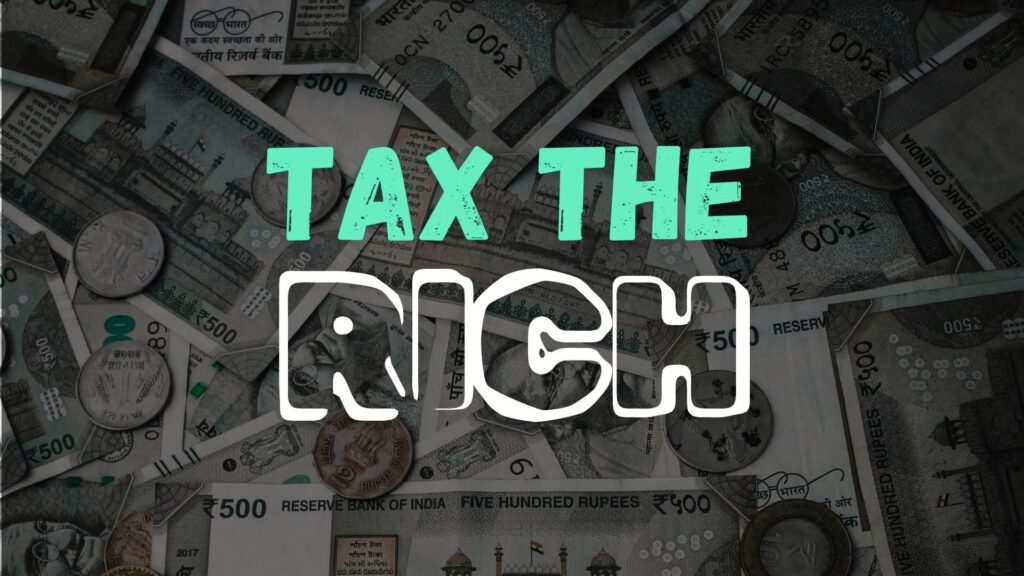

Only four days are left for the presentation of the first budget of the Narendra Modi 3.0 government on July 23. The fundamentals of the economy are currently strong, but the distress areas include the huge unemployment problem with the educated youth and the women feeling the intensity of the distress most. The number of billionaires has gone up in great speed while the real wages of the workers and the rural poor have declined. In sum, there has been growth in the Indian economy under the ten year rule of the NDA led Narendra Modi government with lack of social justice and widening of inequalities.
For any government in a parliamentary democracy, the first budget after the Lok Sabha election win, gives a big opportunity for course correction with a view to improving the living standards of the underprivileged. Right now, the two principal challenges of the Indian economy include large scale generation of jobs and improving the income of the people in the lower income group. The finance minister Nirmala Sitharaman has concluded her pre-budget consultations with different stake holders and in all meetings, the question of mobilising additional resources came up. Nowhere there was any serious talk about compelling the country’s burgeoning super rich to share additional burden for restoring equity in the economy.
The proposal for imposing tax on super rich has been discussed at the global level. The next G-20 summit in Brazil on November 18 and 19 this year is discussing this issue. Both Brazil and South Africa have endorsed the proposal. Prime Minister Narendra Modi who was the last president of G-20 has kept mum on the proposal though he will be attending the November summit and has to talk about India’s position on this proposal which is vital in the context of inequality spreading very fast in the Indian society.
What is this tax on super rich or billionaire tax as the Congress calls it.? The latest wedding extravaganza in the Mukesh Ambani family has shown to what extent, funds can be spent for the wedding of a son by a super rich. India has a trillion dollar wedding industry of the super rich. They include industrialists, sportsmen, film personalities, high worth politicians. Their wedding expenses should be scanned and a tax should be imposed above a limit. According to one estimate, there are 167 dollar billionaires in India and the number is rising exponentially. A two per cent tax will fetch Rs. 1.5 lakh crore. The amount can be spent for developmental programmes including creating jobs in labour intensive projects.
As per an analysis made by the renowned economist Dr. Pranab Bardhan, additional resources can be generated by reducing the direct and indirect subsidies that the government gives to the better off. In India, inheritance and wealth tax is zero and the capital gains taxes are much lower compared to the United States. The tax system is still tilted towards rich, For instance in the context of pandemic, the Modi government, in a single stroke reduced the rate of corporate tax and the loss to the exchequer was Rs. 1.84 trillion. The industrialists became richer during covid period while the workers and employees lost jobs and faced acute poverty. Dr. Bardhan estimates that with one trillion funds, 20 million jobs can be generated in India.
Finance Minister Nirmala Sitharaman must have gone through the recent studies on tax evasion by the companies globally including India. According to a 2023 study by advocacy group Tax Justice Network, countries around the world could lose up to $4.8 trillion (£3.8 trillion) in tax revenue over the next decade due to tax havens. These havens are patronized by the global companies as also the rich many of them belonging to India. A report earlier this year by the EU Tax Observatory found that billionaires worldwide have effective tax rates equivalent of between 0 per cent and 0.5 per cent of their wealth. What is shocking is that during pandemic years, while the poor and others suffered and died, the profits of the big companies as also the worth of the rich individuals went up. In fact inequality widened more in pandemic years.
For India, the imposition of a special tax on super rich is overdue as all the recent reports including the latest OXFAM report released in January this year show that inequality has been steadily going. In pandemic and post pandemic years, the poor people without assure social security are having pathetic living conditions whereas the incomes of upper middle class and rich have been on the rise. The widening of inequality has special impact in India because the common citizens are not protected through social security measures like many other countries of West and Latin America and other developing nations.
According to OXFAM report, India is facing rising industrial concentration in just five hands, and is enriching billionaires, private equity funds, and crony capitalists driving unprecedented level of inequalities and poverty among people. Dalits are facing high and unaffordable out-of-pocket fees in the private healthcare sector, financial exclusion in the private healthcare sector, and overt discrimination in both.
Globally, since 2020, the richest five men have doubled their fortunes, but during the same period almost five billion people globally have become poorer. Hardship and hunger are daily reality, and at the current rate, it will take 230 years to end poverty, but we could have the world’s first trillion are in just 10 years.
In India, where the private healthcare sector is now worth US$236 billion and rising rapidly, the World Bank’s private sector arm, the International Finance Corporation (IFC), has directly invested over half a billion dollars in some of the country’s largest corporate hospital chains owned by some of its richest billionaires. Yet in June 2023, Oxfam found that the IFC has not published a single evaluation of its health projects in India since these started over 25 years ago. Indian health regulators have upheld multiple complaints, including cases of hospitals overcharging, rigging prices and refusing to treat patients living in poverty for free, despite this being a condition of receiving government land for free. Furthermore, of the 144 hospitals funded, only one is located in a rural area.
For years, Oxfam has raised alarm about widening and extreme inequality. In 2024, the very real danger is that these extraordinary extremes are becoming the new normal. Corporate and monopoly power is an unrelenting inequality-generating machine, the report says, adding that we are living through what appears to be the start of a decade of division: in just three years, we have experienced a global pandemic, war, a cost-of-living crisis and climate breakdown. Each crisis has widened the gulf – not so much between the rich and people living in poverty, but between an oligarchic few and the vast majority.
Narendra Modi government and BJP believe in the power of Hindutva-big corporate nexus in continuing the Modi rule in his third term. In the last Lok Sabha elections, the Indian electorate gave a big rebuff to the economic policies of the second Modi government by reducing the BJP seats by 63. It is to be seen whether the ruling party, especially the Prime Minister has learnt any lesson and take any course correction in the government’s economic policies through the budget proposals. (IPA Service)



